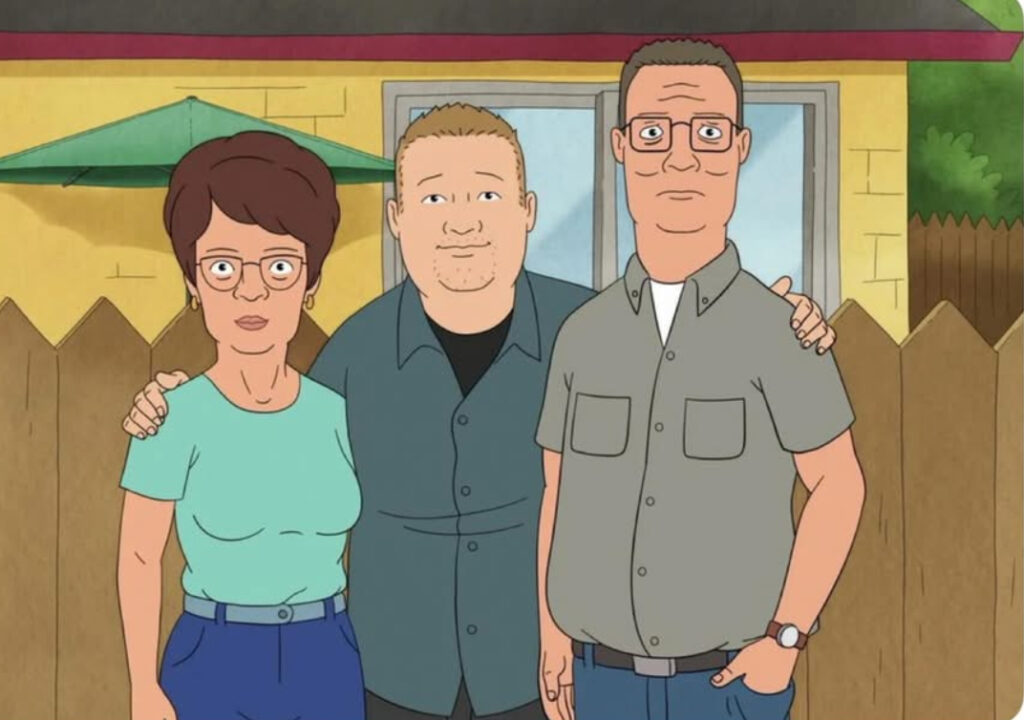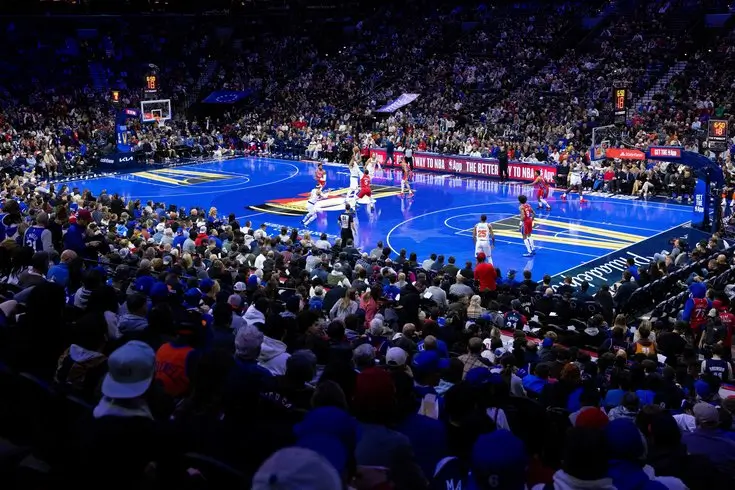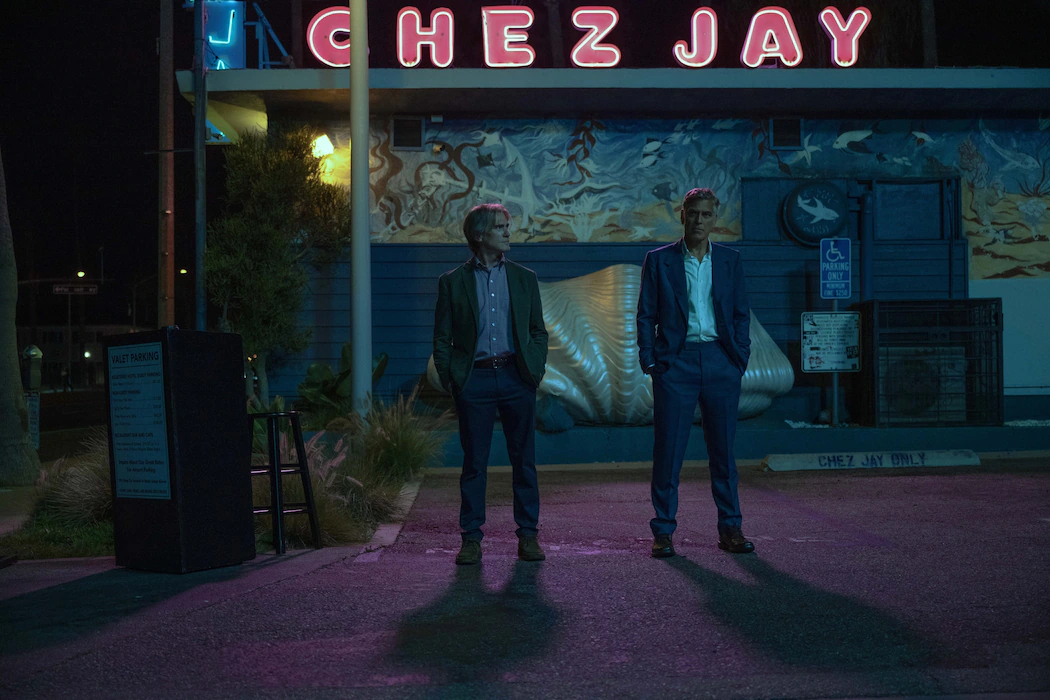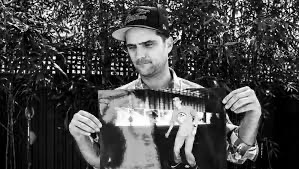The suburban hum of Arlen, Texas, is rising once again. Hulu has announced the long-anticipated revival of King of the Hill will premiere August 4, ushering in a new era for the beloved animated sitcom. A cult classic that initially aired from 1997 to 2010, King of the Hill returns not as a reboot but as a continuation—one that acknowledges the passage of time both inside the show and out.
With co-creator Mike Judge reprising his role as the curmudgeonly yet lovable Hank Hill, the revival arrives amid a climate of revived IPs and nostalgic reimaginings. But unlike many reboots that attempt to modernize without grounding, Hulu’s take leans into continuity. It’s a series aged in real time: the Hills have changed, Arlen has changed, and most of all, America has changed. Yet the voice of the show—the quiet realism wrapped in absurdist humor—remains intact.
A Changed Arlen: Plot Developments and Character Evolution
The new series opens with Hank and Peggy Hill returning to Arlen after years abroad. The premise is surprising, if not humorous in its own right: Hank took a propane job in Saudi Arabia to secure their retirement nest egg. It’s a satirical nod to both global capitalism and the increasing lengths Americans go to for economic stability. Peggy, ever the striver, follows him—a domestic duo adapting to a culture far from their Texan roots.
But they don’t return to the same Arlen they left. As depicted in the newly released 40-second opening sequence, Arlen has evolved. There’s a new family living in the Hill home. The pandemic, a seismic cultural force, is part of the show’s timeline. And perhaps most poignantly, Bobby Hill is no longer the awkward tween—he’s a fully grown adult thriving in Dallas as a chef, surrounded by his childhood friends Connie, Joseph, and Chane.
This thematic framing—of parents returning home to a town and son that have moved on—anchors the series in contemporary emotional realism. Hulu isn’t trying to recreate the original’s moment in time; instead, it builds upon it. King of the Hill 2025 is a generational story about change, estrangement, and reconciliation. And it does so with its original characters at the forefront.
Cast and Continuity: A Tribute to the Originals
The voice cast reprising their roles is nothing short of a small miracle in animation. Mike Judge (Hank), Kathy Najimy (Peggy), Pamela Adlon (Bobby), Lauren Tom (Connie), Stephen Root (Bill), and Toby Huss (Kahn) are all back in the booth. Perhaps most notable is the return of Johnny Hardwick as the voice of Dale Gribble. Hardwick, who sadly passed away in 2023, had recorded lines for this season prior to his death. Huss has respectfully stepped in for remaining episodes.
Their return ensures that the tone and rhythm of the original series are retained. Few animated sitcoms have ever captured small-town nuance like King of the Hill, which balanced critique and care in equal measure. Dale’s libertarian paranoia, Boomhauer’s barely intelligible monologues, Peggy’s inflated self-worth, and Hank’s propane-and-patriotism conservatism were never played merely for laughs—they reflected the contradictions embedded in American life.
By bringing these voices back, Hulu is betting on emotional fidelity over gimmickry. Fans are not only reunited with characters they love, but with the exact intonations that made them timeless.
Culinary Dreams and Coming-of-Age in Dallas: Bobby Hill’s New Arc
Of all the characters to undergo transformation, Bobby Hill’s arc is perhaps the most compelling. Once a chubby, free-spirited boy with comedic aspirations, Bobby is now in his 20s, living in Dallas and flourishing as a chef. In classic King of the Hill fashion, the premise is modest yet rich in potential. Bobby isn’t a celebrity or viral sensation—he’s simply doing something he loves, quietly and earnestly.
This culinary direction is a brilliant narrative decision. It builds on Bobby’s established love of creativity and nontraditional masculinity, while contrasting with Hank’s more conservative ideals of work and manhood. Culinary arts allow Bobby to express himself, find independence, and define success on his own terms. This sets the stage for a poignant generational clash between father and son—not antagonistic, but filled with tension, growth, and affection.
Moreover, Bobby’s circle includes familiar names from the original series: Connie, Joseph, and Chane. By reconnecting these childhood bonds in adulthood, the revival establishes a secondary storyline of millennial camaraderie. It’s not just about what’s changed—it’s about what’s survived. Nostalgia with Nuance: The Visual and Cultural Update
The newly released opening sequence functions as a tone-setting microcosm. Arlen is visibly different, not only in physical detail but in implication. Gentrification, digital signage, and post-pandemic references visually signal the passage of time. One moment, a visual gag alludes to a new family moving into the Hills’ former house—implying not only change but displacement.
What the sequence does so masterfully is blend homage with progression. The familiar side-scroll format from the original remains, echoing the show’s lineage. But details like updated signage, smartphones, and pandemic masks place the viewer in the present. These flourishes don’t scream for attention; they whisper the world has moved on.
This kind of visual storytelling reflects the show’s signature subtlety. King of the Hill was never flashy. Its power came from quiet satire—small jokes that unfolded slowly, like a long Texas summer. The revival honors that rhythm.
American Satire in 2025: The Timeliness of King of the Hill
One could argue there’s never been a more appropriate time for King of the Hill to return. In an era where political polarization dominates discourse, the show’s gentle, character-driven satire feels not only refreshing but necessary. Judge and Daniels never mocked Middle America—they humanized it. They explored its blind spots and hypocrisies, yes, but always through the lens of affection and complexity.
The revival now enters a landscape where rural America is often reduced to caricature, and suburban malaise is rendered either ironically or apocalyptically. King of the Hill does neither. It operates in a moral middle ground, poking fun at small-town logic while celebrating its intimacy, traditions, and unexpected wisdoms.
In doing so, the series offers a counterpoint to the shrillness of modern satire. It asks questions without demanding answers. It pokes fun, not holes. Its politics are never didactic but embedded in the fabric of daily life—whether that’s a propane dispute, a PTA argument, or a cultural miscommunication.
From Propane to Postmodernism: Hank Hill in a New World
Hank Hill’s character arc promises to be central to this revival. What does a man who once extolled the virtues of propane and lawn care do in a post-pandemic, post-globalization America? His time in Saudi Arabia—a conservative, oil-rich kingdom—likely challenged some of his assumptions while reinforcing others. The comedy will likely stem from his attempts to reassert order in a world that no longer operates by his rules.
Expect Hank to struggle with Dallas foodie culture, shifting gender roles, and digital economies. But expect him to do so with quiet frustration, not rage. Hank is no reactionary; he’s a traditionalist trying to adapt. That’s always been the genius of his character.
And with Peggy by his side—part delusion, part genius—the possibilities for marital tension and reinvention are ripe. Peggy’s return to Arlen is bound to be filled with ambition, likely aimed at reclaiming her local reputation or starting something new. Her unshakeable confidence and inappropriate Spanish will no doubt return as comedic pillars.
Flow
Hulu’s King of the Hill revival isn’t just bringing back a show—it’s rekindling a cultural temperament. One that valued dry wit, emotional understatement, and satire as a tool for empathy rather than division. By focusing on a grown-up Bobby, a world-wearier Hank, and a Texas that has evolved like the rest of America, the series isn’t clinging to the past—it’s conversing with the present.
August 4 marks the beginning of this conversation. Whether the revival will run for multiple seasons remains to be seen, but its promise lies not in quantity, but in tone. King of the Hill was always about the quiet middle: between cities and towns, progress and tradition, frustration and love.
In returning to Arlen, we’re invited to see how far we’ve come—and how much still feels familiar.
No comments yet.








